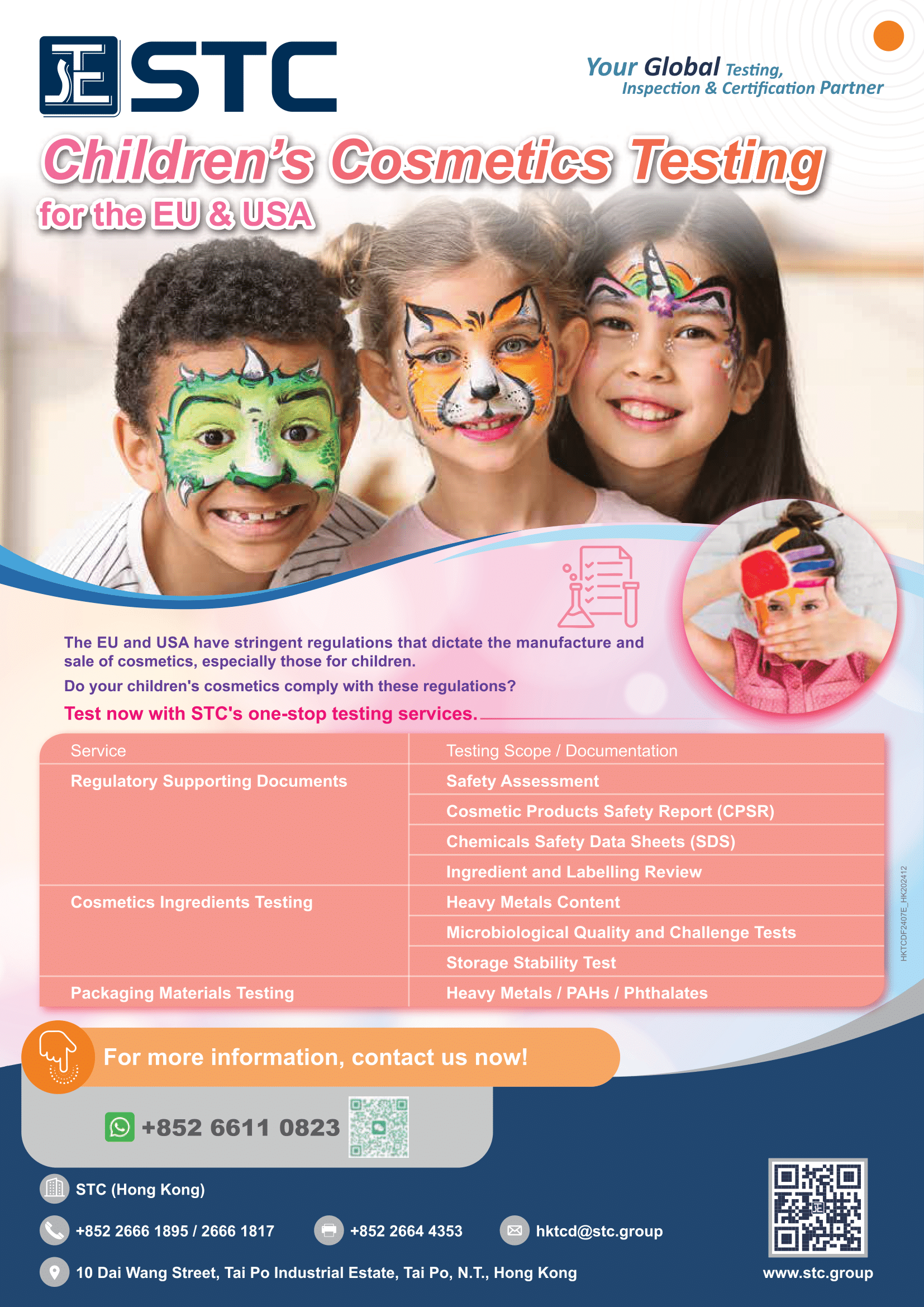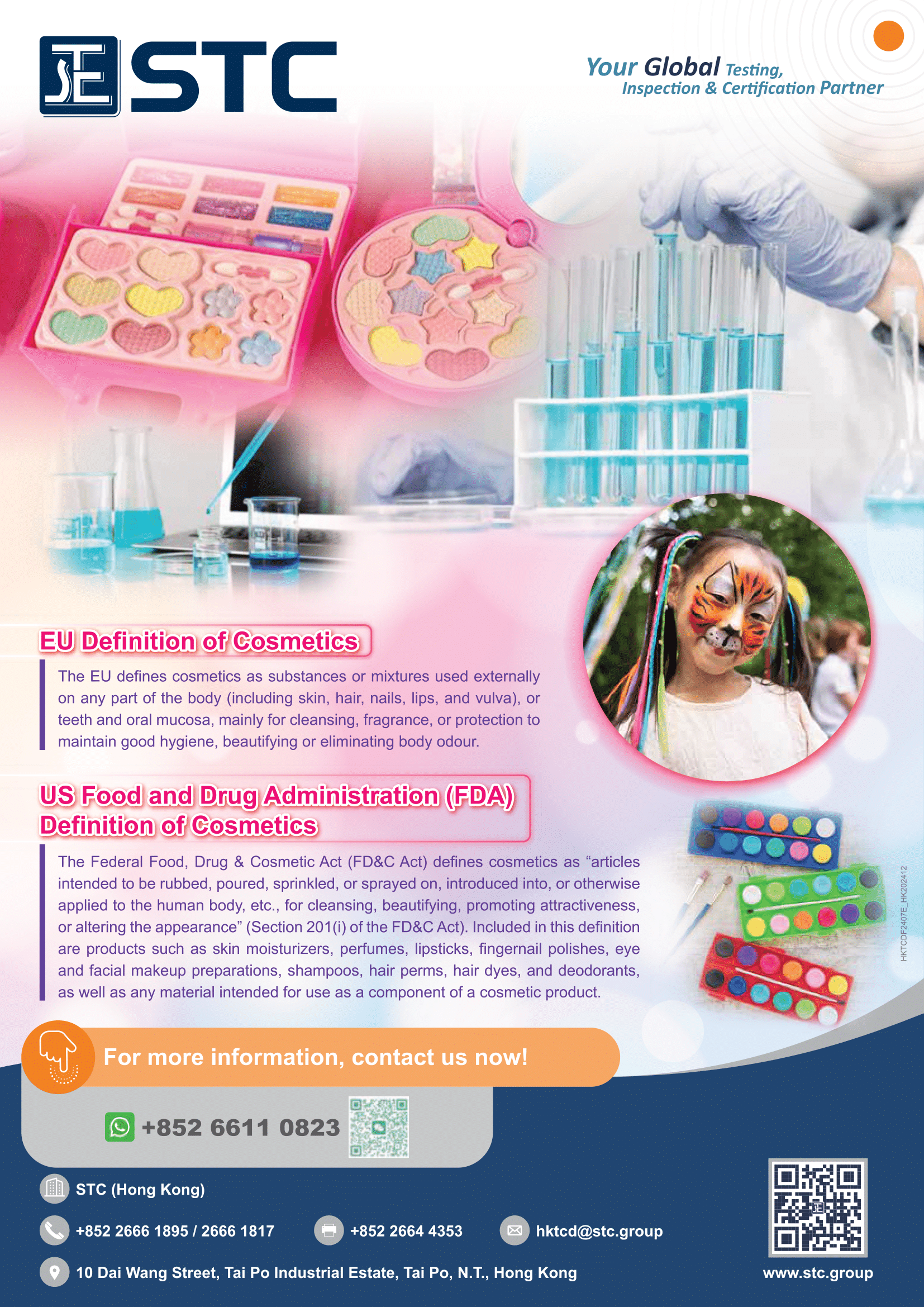
Children’s Cosmetics Testing for the EU & USA
The EU and USA have stringent regulations that dictate the manufacture and sale of cosmetics, especially those for children.
Do your children's cosmetics comply with these regulations?
Test now with STC’s one- stop testing services.
Service 1: Regulatory Supporting Documents
Testing Scope / Documentation 1 :Safety Assessment, Cosmetic Products Safety Report (CPSR), Chemicals Safety Data Sheets (SDS), Ingredient and Labelling Review
Service 2: Cosmetics Ingredients Testing
Testing Scope / Documentation 2 :Heavy Metals Content, Microbiological Quality and Challenge Tests, Storage Stability Test
Service 3: Packaging Materials Testing
Testing Scope / Documentation 3 :Heavy Metals / PAHs / Phthalates
EU Definition of Cosmetics
The EU defines cosmetics as substances or mixtures used externally on any part of the body (including skin, hair, nails, lips, and vulva), or teeth and oral mucosa, mainly for cleansing, fragrance, or protection to maintain good hygiene, beautifying or eliminating body odour.
US Food and Drug Administration (FDA) Definition of Cosmetics
The Federal Food, Drug & Cosmetic Act (FD&C Act) defines cosmetics as “articles intended to be rubbed, poured, sprinkled, or sprayed on, introduced into, or otherwise applied to the human body, etc., for cleansing, beautifying, promoting attractiveness, or altering the appearance” (Section 201(i) of the FD&C Act). Included in this definition are products such as skin moisturizers, perfumes, lipsticks, fingernail polishes, eye and facial makeup preparations, shampoos, hair perms, hair dyes, and deodorants, as well as any material intended for use as a component of a cosmetic product.
For more information, contact us now!
Tel: +852 2666 1895 / 2666 1817
Fax: +852 2664 4353
Email: hktcd@stc.group











